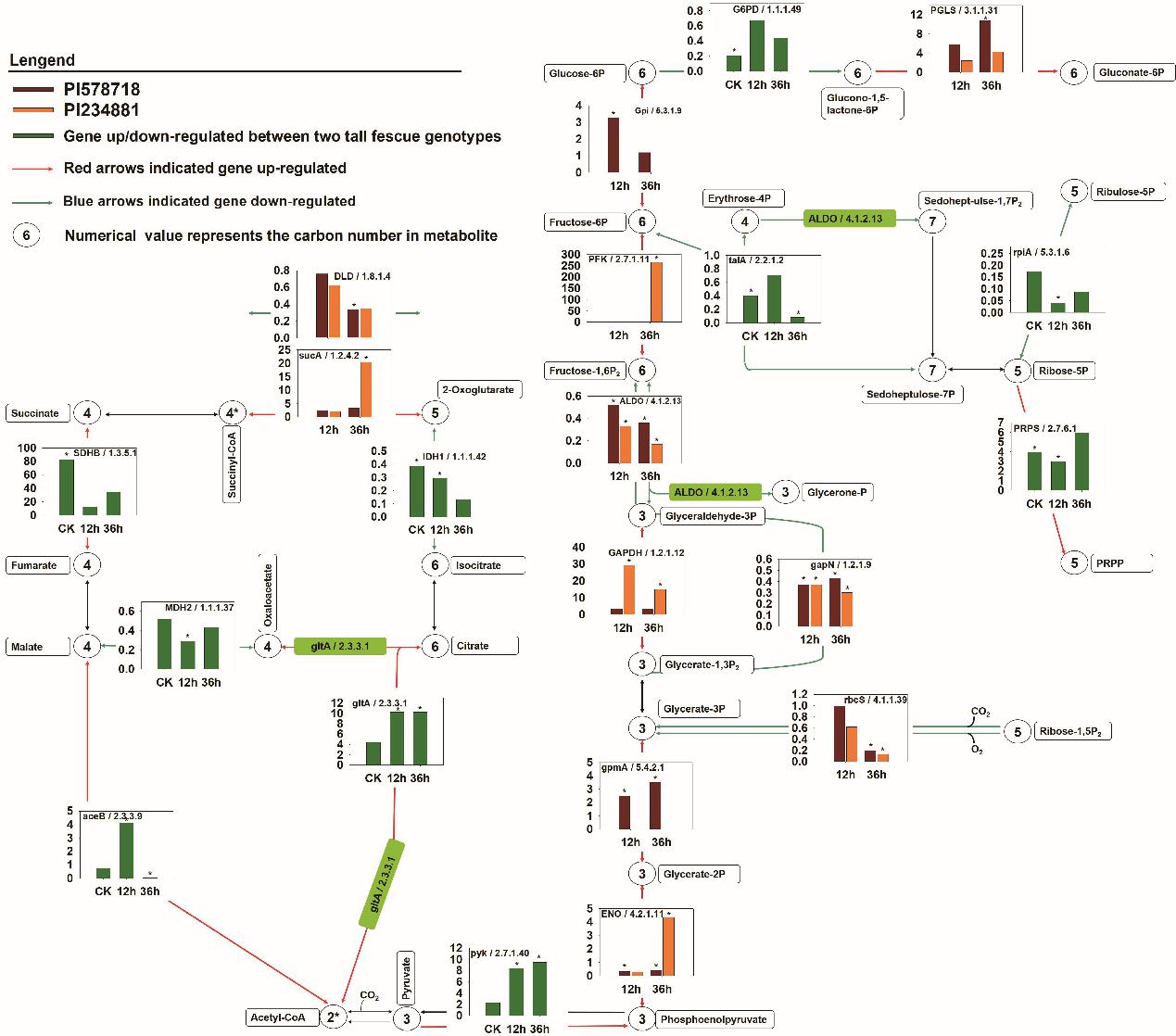Name:HU Tao
Tell:
Email:hut420@wbgcas.cn
Organization:Wuhan Botanical Garden
Coupling Deep Transcriptome and Metabolome Analysis Unveils Thermotolerance in Cool-season Turfgrass
2020-09-29
Tall fescue (Festuca arundinacea Schreb.) is the predominant forage and cool-season perennial species in the USA, China and several European countries, which grows at optimum temperature ranging from 18 to 25 oC. High temperature damage impairs the growth of tall fescue by inhibiting secondary metabolites. Little is known about the regulation pattern of the fatty acids and carbohydrate metabolism at the whole-transcriptome level in tall fescue under high temperature stress.
Researchers form Molecular Breeding of Turfgrass and Forage Grass Group, Wuhan Botanical Garden first analyzed the high temperature damage to fatty acids and carbohydrate metabolism in two tall fescue accessions (PI 234881 and PI 578718) by using coupling deep transcriptome and metabolome analysis.
Using RNA-Seq, 121 genes were induced during the second energy production phase in tall fescue exposed high-temperature conditions, indicating that there may be one energy-sensing system in cool-season turfgrass to adapt high-temperature conditions.
Using gas chromatography mass spectrometry (GC-MS), the sugars and sugar alcohol accounted for more than 65.06% of the total 41 metabolites content and high-temperature elevated the rate to 82.89-91.16% in PI 578718.
High-temperature toxicity decreased the rate of fatty acid in the total 41 metabolites content and PI 578718 showed lower content than in PI 234881, which was attributed to the down-regulated genes in fatty acid biosynthesis pathway in tall fescue.
Seven sugars: tagatose, psicose, lactulose, idose, allose (5TMS) BP, glucoheptose and inositol, and two fatty acids: octadecan-1-ol and octadecadienoic acid showed more enrichment in PI 234881 than that in PI 578718 under heat stress.
The integration of deep transcriptome and metabolome analyses provides systems-wide datasets to further understand heat response in cool-season turfgrass.
This study was supported by the National Natural Science Foundation of China. Relevant results were recently published in the Ecotoxicology and Environmental Safety entitled “High temperature damage to fatty acids and carbohydrate metabolism in tall fescue by coupling deep transcriptome and metabolome analysis”.

Levels of unigenes expression for carbohydrate metabolism in tall fescue in response to high temperature based on RNA-Seq and GC-MS. Each box represents a gene product affected by heat stress in carbohydrate metabolism pathway. The transcript data in the histogram present with the fold change value. Stars above bars indicated the change reaching signifcant level. The green histogram represents the change of gene expression just between two tall fescue genotypes. (Image by HU Tao)